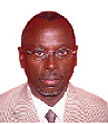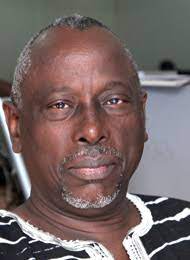The problem in the Democratic Republic of Congo seems intractable. But it really isn’t. The Congolese could fix it tomorrow if they chose. But they won’t. And this is why. The Congolese government and people have surrendered responsibility over their country to others.


The problem in the Democratic Republic of Congo seems intractable. But it really isn’t. The Congolese could fix it tomorrow if they chose. But they won’t. And this is why. The Congolese government and people have surrendered responsibility over their country to others.It is a historical thing, you might say. They do not own their country now. They have never owned it at any time in the past. It has been run by a variety of interests, largely foreign, from the time when King Leopold of Belgium owned it as his personal property to the present when President Joseph Kabila pretends to preside over its affairs.And as if to underline the instability and continual change of ownership, the country has changed names more than any other in the world. First it was the Congo Free State, then Belgian Congo before becoming Congo Leopoldville and later Congo Kinshasa. Then it changed to Zaire and now Democratic Republic of Congo. If change of names were to be a measure of improvement, DRC would be the most improved country in the world. As it is, it only emphasises the lack of real ownership, direction and purpose.Because the Congolese have never owned their country, they are unable to take responsibility for its affairs. They tend to push it to outsiders. If there is a problem in the country, like there is now, its source must be outside. Its solution also must come from outside. By this logic, the conflict in eastern DRC is caused by Rwanda, not by the absence of the state or government-inspired xenophobia. The insecurity, instability and humanitarian crisis in the region is the work of Rwanda-backed M23 rebels and has nothing to do with the presence of the genocidal FDLR and a host of other armed groups.And the magic solution to this essentially Congolese problem? Crucify Rwanda. Slap sanctions on the meddlesome country and everything will be alright. Cut aid to the little upstart and you will see Congo turn into paradise. Beef up MONUSCO (surely already bloated) and drive out the foreigners. Notice there is no mention of what the Congolese can or will do.A certain Lambert Mende has been leading the chorus demanding that Rwanda be crucified. He has since been joined by a group of religious leaders who have taken the cry to Western capitals. Apparently, the good men of the cloth have forgotten that a certain innocent man in whose name they profess to speak was unjustly hung because of the clamour of the mob. Actually, the action of the Congolese clerics is not surprising because that mob over two thousand years ago had been put to it by religious leaders.From a historical perspective it is possible to appreciate the attitude of the Congolese. They have been politically emasculated throughout the metamorphosis of their country (in name only).Leopold and his brutal overseers so savaged the country and its people that most of them lost the will to fight for themselves.When Patrice Lumumba tried to restore the dignity and fighting spirit of his compatriots, he was brutally cut down and the effort went down with him.Mobutu, who ruled Congo after that, was the black re-incarnation of Leopold. His rule was perhaps less savage, but equally debilitating to the spirit of the Congolese. The man strutted across the country like he was immortal and gave the citizens a false sense of self-worth, while effectively running down the country as a state and as an enterprise. Foreign interests propped him up as they plundered the country’s wealth.His successors have done no better. They have spent most of the time squabbling in Kinshasa, looking to the outside for approval and support, and leaving the provinces without effective government.The historical experience of Congo that has resulted in the inability to act has created an attitude where they must look for a big brother to protect them. Foreign interests recognise this weakness in the national character and have exploited it to great advantage.In the current conflict in eastern DRC, who is doing most of the talking? Outsiders. Not Congolese. There is Human Rights Watch making the loudest noise and pointing fingers. It is convenient for them because their existence depends on troubled and muddy waters. These fellows, whose application of rights is selective, have the unusual capacity to see atrocities committed by some in a few months, but are totally blind to more evil acts done by others over a longer period. And, of course, they can produce a report in a flash.That’s the same with a variety of experts, led by the UN Group of Experts. Their expertise is such that they cannot even tell a lie convincingly.Then there are various individuals and governments across the world that purport to speak on behalf of the Congolese.An examination of this tendency points to a patronising attitude. It’s like: "Look, you are suffering, but are incapable of speaking or standing up for yourself. So we will do it for you”.The Congolese have for all practical purposes ceded their responsibility and independence to a bigger brother. That’s why they will not solve their own problems.


